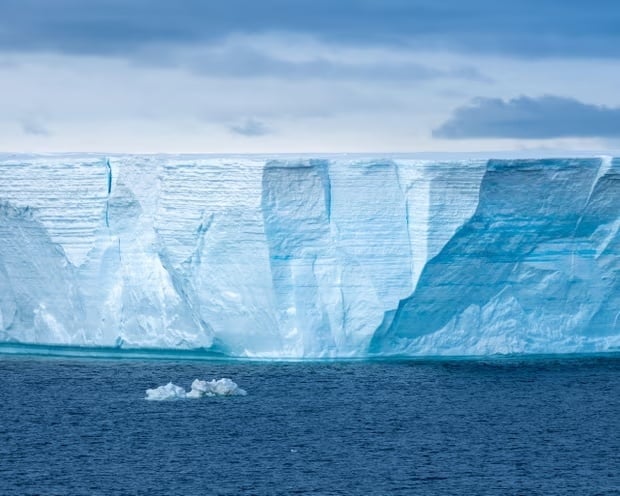 |
Measuring the extent of ice loss is proving difficult. Photo: Alamy . |
The US Department of Defense announced last week that it will stop processing and providing data used in studies of sea ice conditions in the Arctic and Antarctic at the end of July. Monitoring sea ice conditions is crucial to helping scientists understand how global climate change is affecting the Earth.
Scientists are analyzing the knock-on effects of record-low sea ice levels in Antarctica, and they fear that the loss of vital satellite data from the US government will make it harder to track rapid changes at both poles.
The National Snow and Ice Data Center (NSIDC), based at the University of Colorado, which maintains the Sea Ice Index, a tool used around the world to track sea ice extent in near real time, said the US Department of Defense, which operates satellites equipped with instruments to monitor sea ice, will stop processing and providing data on July 31.
Climate scientists have long warned that budget cuts under the Trump administration have targeted many climate-related programs across the government, according to The Guardian . The move comes amid new research showing that Antarctic sea ice has fallen to record lows.
Dr Alex Fraser, a co-author of the study from the Australian Antarctic Partnership Program (AAPP), highlights the importance of the sea ice data from NSIDC, comparing it to the scientific community's “number one heart monitor”. “We now have to piece together a new dataset from a different device, without the continuous context we had,” he said.
NSIDC says it is extracting data from another satellite with higher resolution, but warns that the source may not be fully compatible with the current data. When asked why the government stopped providing the data, Dr. Walt Meier of NSIDC said it may be because the equipment is old and limited resources have made the Department of Defense reluctant to spend money on upgrading.
Fraser added that given the current situation, the disruption comes at the worst possible time. Sea ice has the ability to reflect solar energy back into space. However, as sea ice declines over time, more of the planet's oceans are exposed to direct solar energy, causing increasingly severe warming, according to the study published in the journal PNAS Nexus.
Many icebergs are breaking away from continental ice shelves. This could cause global sea levels to rise faster than current models predict. Dr Sue Cook, a glaciologist at the AAPP, said the rate at which ice breaks up is still not accurately predicted.
“If summer sea ice declines severely but we continue to use models based on data from past periods, we will inevitably underestimate the rate at which Antarctica contributes to sea level rise,” she said.
A Navy confirmed that the Defense Meteorological Satellite Program (DMSP) data processing will officially end “in accordance with Department of Defense policy.” DMSP is a joint program owned by the US Space Force and is scheduled to end in September 2026 because it no longer meets its information technology modernization requirements.
Source: https://znews.vn/nghien-cuu-quan-trong-bi-ngung-cap-du-lieu-post1565313.html





























































































Comment (0)